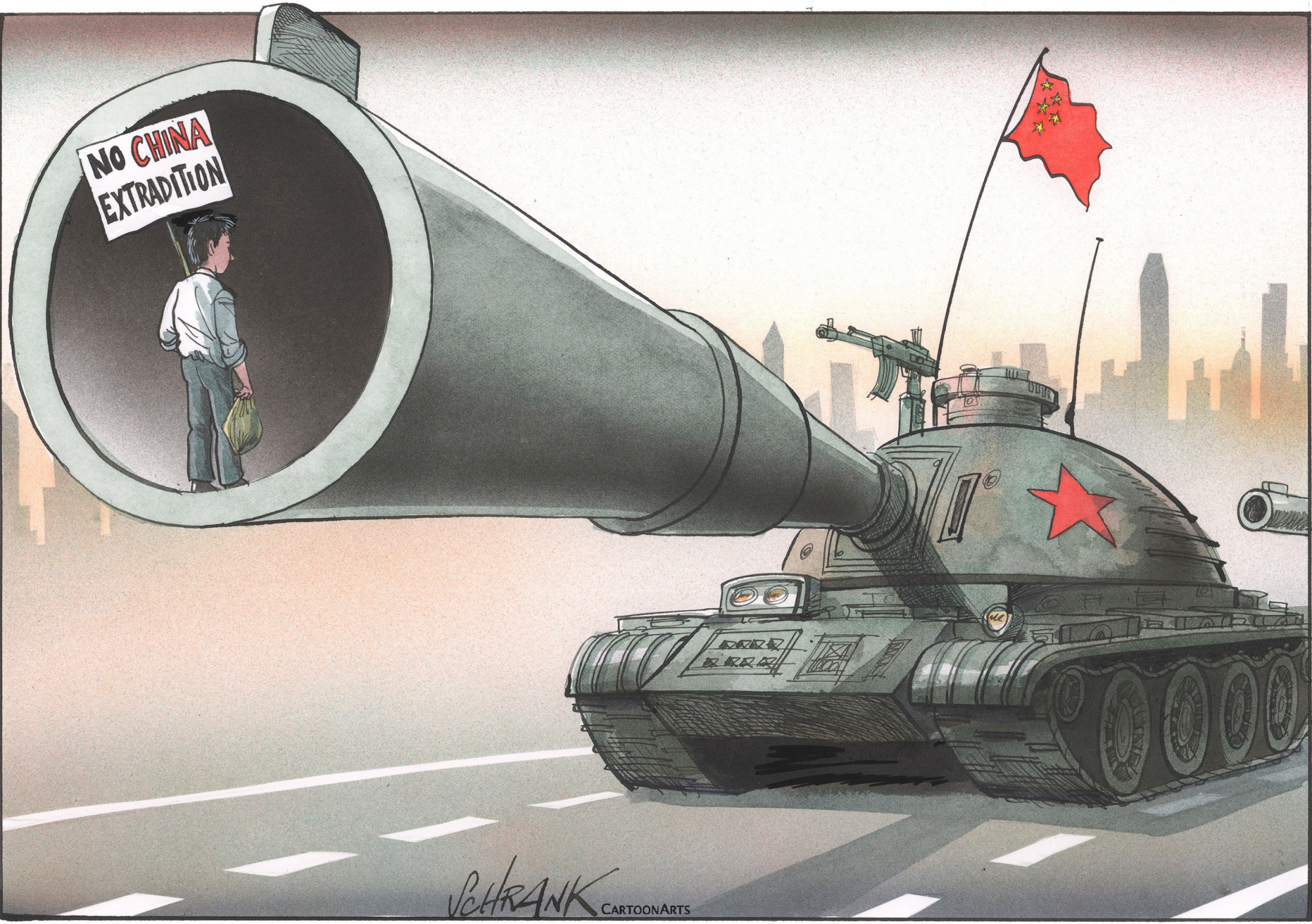The apparent victory of Hong Kong protesters and a mini-thaw taking place in Russia are interesting departures from the usual practice of two regimes known to have no reverse gear. Could they have decided to learn a technique one student of authoritarianism has dubbed "contained escalation"?
The communist government of mainland China has been whittling away at Hong Kong's British-style liberties for years, and protests were routinely ignored. The so-called Umbrella Revolution of 2014 — a series of protests against a plan to have candidates for the role of Hong Kong's chief executive screened by the mainland — resulted in the preservation of an even more restrictive electoral system. And last April, nine of the movement's leaders were convicted of "conspiring" and "inciting" to cause a public nuisance. Even in relatively liberal Hong Kong, the regime that crushed the Tiananmen Square protests didn't step back in the face of popular indignation.
This time it's different — the (much more numerous) protesters have forced pro-Beijing Chief Executive Carrie Lam to shelve a bill that would allow extradition from Hong Kong to the mainland, which would have dealt a major blow to the special economic region's judicial independence. And Lam has promised no arrests, too.

















With your current subscription plan you can comment on stories. However, before writing your first comment, please create a display name in the Profile section of your subscriber account page.